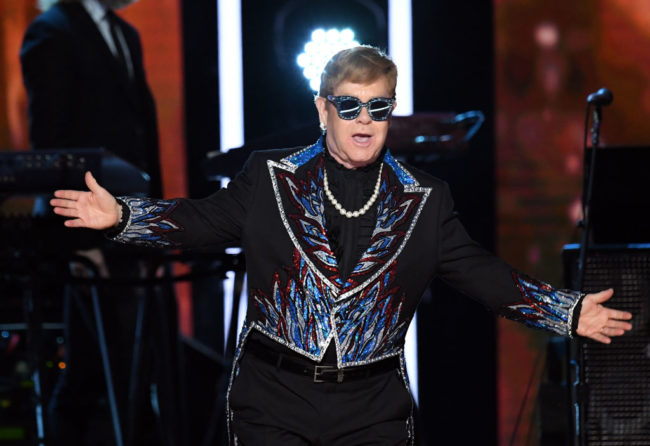Elton John backs boycott of Brunei hotels ahead of anti-gay law

Ian Gavan/Getty
Elton John has backed calls to boycott hotels owned by the Brunei Investment Agency as the country prepares to introduce the death penalty for gay people on 3 April.
The popstar posted about Brunei’s new laws—which will also see adultery punishable by death—on Twitter where he said that being able to choose who we love is “a basic human right.”
“Wherever we go, my husband David and I deserve to be treated with dignity and respect—as do each and every one of the millions of LGBTQ+ people around the world,” Elton John said.
He continued: “I commend my friend, George Clooney, for taking a stand against the anti-gay discrimination and bigotry taking place in the nation of Brunei—a place where gay people are brutalized, or worse—by boycotting the Sultan’s hotels.
“Our hearts go out to the good, hardworking employees of properties owned by the Sultan of Brunei, many of whom we know to be gay.
“We must send a message, however we can, that such treatment is unacceptable. That’s why David and I have long refused to stay at these hotels and will continue to do so.
“We hope you will join us in solidarity.”
He then tweeted a list of the hotels that people should boycott. The list is available here.
Elton John and George Clooney have led calls for a boycott of Brunei owned hotels
Elton John’s calls for a boycott come just days after George Clooney penned an op-ed for Deadline in which he said that he would be boycotting the hotels—and called on others to do the same.
He wrote: “Every single time we stay at or take meetings at or dine at any of these nine hotels we are putting money directly into the pockets of men who choose to stone and whip to death their own citizens for being gay or accused of adultery.”
“Brunei is a Monarchy and certainly any boycott would have little effect on changing these laws. But are we really going to help pay for these human rights violations? Are we really going to help fund the murder of innocent citizens?”
“We must send a message, however we can, that such treatment is unacceptable. That’s why David and I have long refused to stay at these hotels and will continue to do so.”
– Elton John
It emerged just last week that Brunei—an Asian country with a population of just 500,000 people—was set to introduce whipping and death by stoning for gay people and those accused of adultery.
The country first introduced elements of Islamic criminal law in 2014 and said that they would be implementing it fully over the course of three stages.
Last week, human rights group The Brunei Project said that the government was now “rushing through the final two phases concurrently.”

Kevin Winter/Getty
Brunei has said the law will ‘deter’ people from acts that are ‘against the teachings of Islam’
The prime minister’s office in Brunei yesterday confirmed to Reuters that the new laws will be coming into effect in due course, and defended their actions.
“The (Sharia) Law, apart from criminalizing and deterring acts that are against the teachings of Islam, also aims to educate, respect and protect the legitimate rights of all individuals, society or nationality of any faiths and race,” the statement said.
Homosexuality was already illegal in Brunei but was previously punishable by up to 10 years in prison.
On Friday (29 March) the UK government warned British citizens travelling to Brunei of the potential impact of the new laws.
“Corporal and capital punishment goes against our national values and has been banned in the United Kingdom for decades,” a Foreign and Commonwealth Office spokesperson told PinkNews.
“The Minister for Asia and High Commissioner have raised their concerns in person, and we have updated the travel advice to warn British citizens of the new local laws in Brunei.”
The Foreign Office also confirmed to PinkNews that minister of state Mark Field has written to Dato Erywan, Brueni’s minister for foreign affairs, to reiterate the department’s concerns over the anti-LGBT+ legislation.

